Indigenous Governance Database
Cultural Affairs
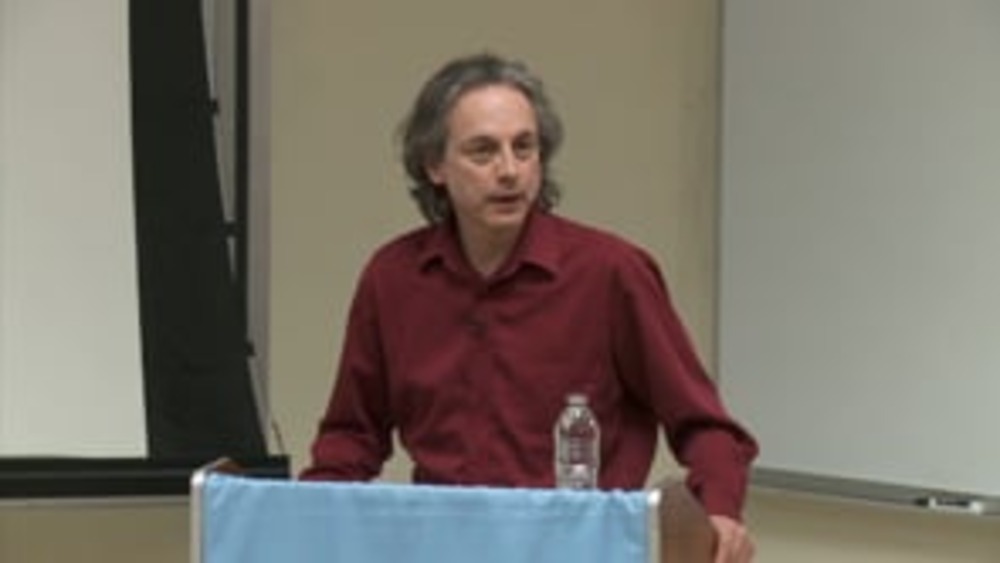
Robert Innes: Elder Brother and the Law of the People: Maintaining Sovereignty Through Identity and Culture
Robert Innes, a citizen of the Cowessess First Nation in Saskatchewan, discusses how traditional Cowessess kinship systems and practices continue to structure and inform the individual and collective identities of Cowessess people today, and how those traditional systems and practices are serving…
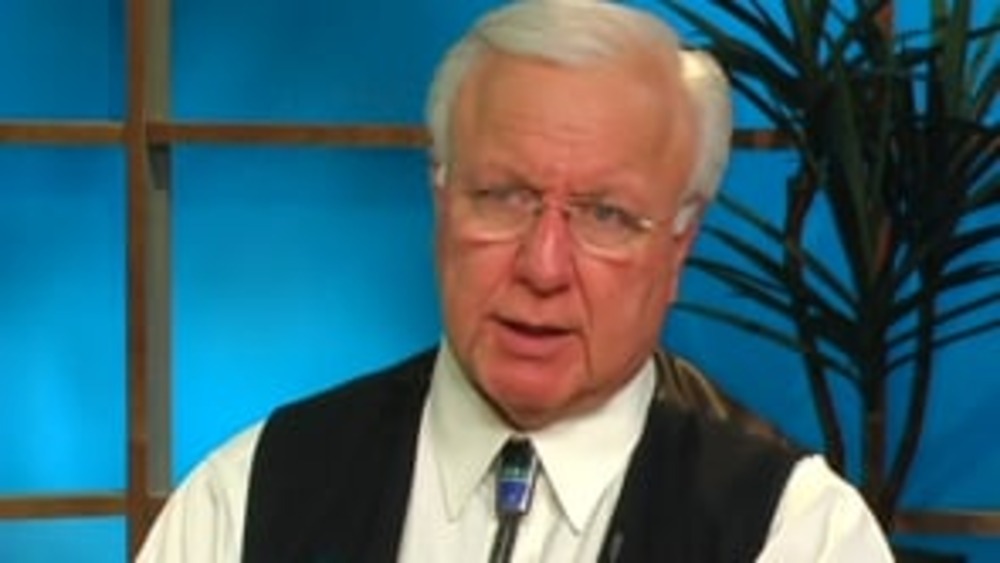
John "Rocky" Barrett: Citizen Potawatomi's Inclusive Approach to Citizenship
A 3-minute clip of an interview with Chairman Barrett describing how Citizen Potawatomi Nation created a government structure and constitution that worked for the nation's large and very dispersed population.
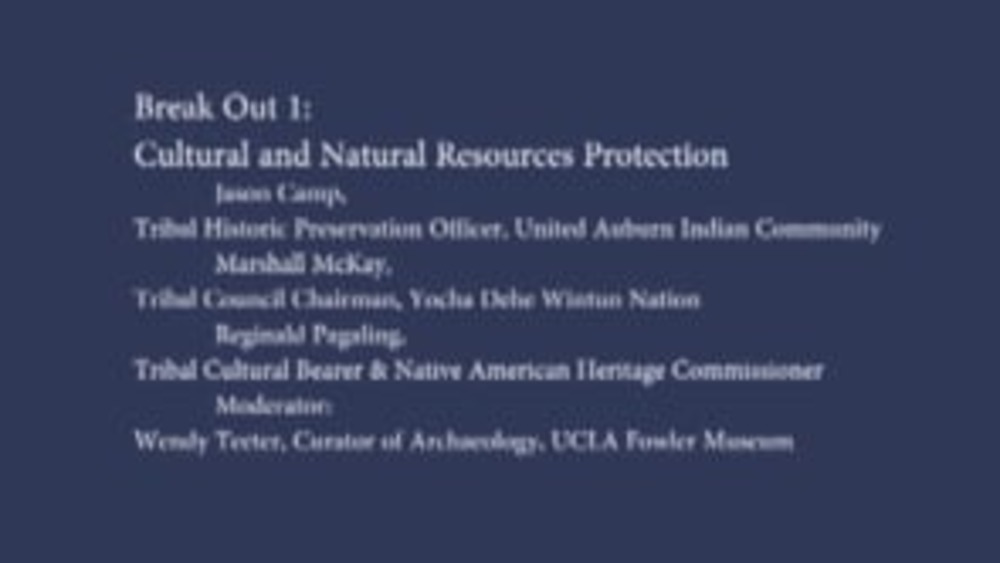
Good Native Governance Breakout 1: Cultural and Natural Resources Protection
UCLA School of Law "Good Native Governance" conference presenters, panelists and participants Reginald Pagaling, Marcos Guerrero, and Marshall McKay discuss their experience with cultural preservation and cooperation with the local and state governements. Reginald addresses the areas of concerns…
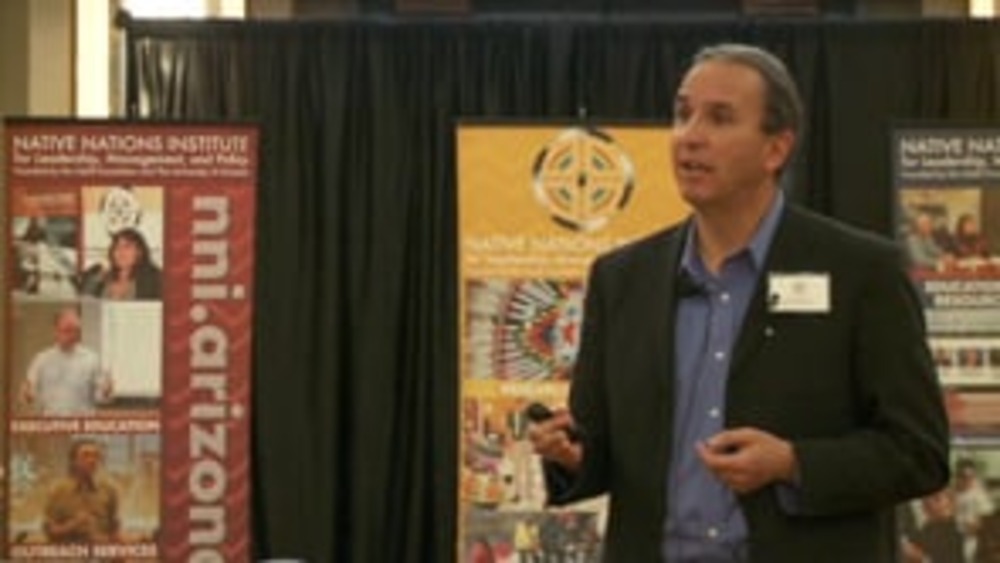
Terry Janis: Citizen Engagement and Constitutional Change at the White Earth Nation
Terry Janis (Oglala Lakota), former Project Manager of the White Earth Nation Constitution Reform Project, provides participants with a detailed overview of the multi-faceted approach to citizen engagement that the White Earth Nation followed as it worked to educate the White Earth people about the…
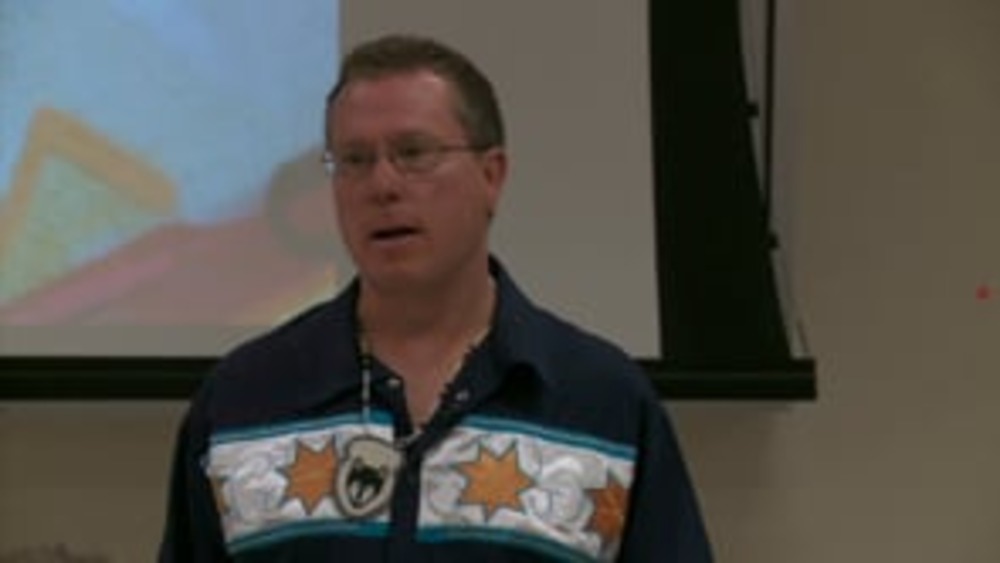
Jeff Corntassel: Sustainable Self-Determination: Re-envisioning Indigenous Governance, Leadership and Resurgence
Scholar Jeff Corntassel (Cherokee) lays out his comprehensive explanation for what sustainable self-determination entails for Indigenous peoples in the 21st century, and provides examples of some of the ways that he and others are engaging in small and large acts of resurgence that contribute to…
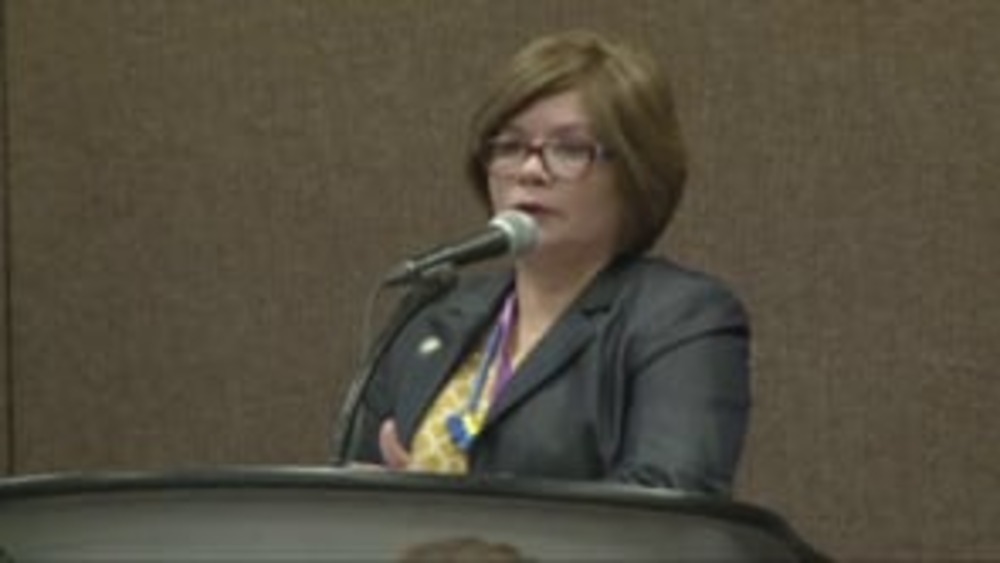
Patricia Riggs: The Role of Citizen Engagement in Nation Building: The Ysleta del Sur Pueblo Story
Patricia Riggs, Director of Economic Development for Ysleta del Sur Pueblo (YDSP), discusses how YDSP has spent the past decade developing and fine-tuning its comprehensive approach to engaging its citizens in order to identify and then achieve its nation-building priorities. This video resource…
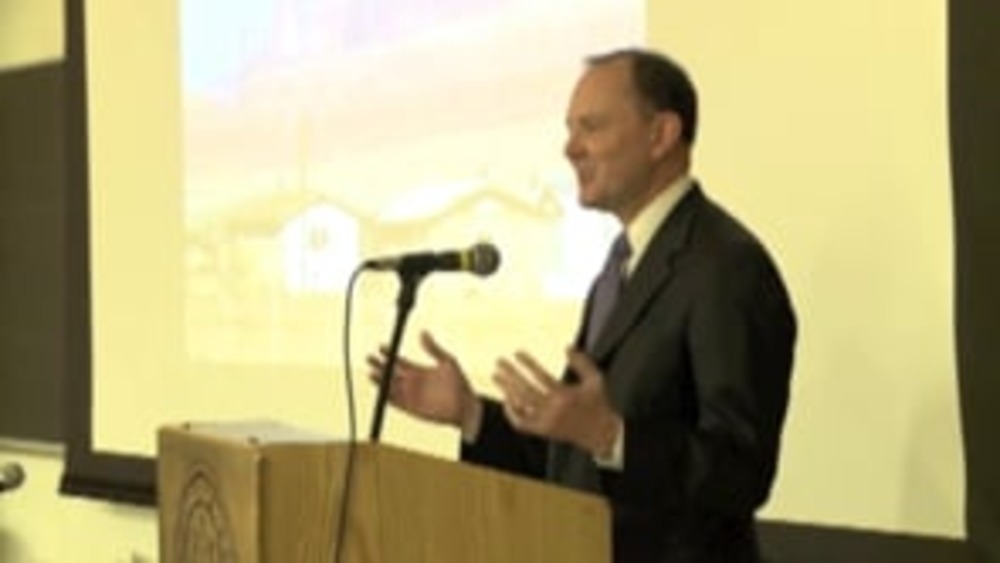
From the Good Native Governance: Innovative Research in Law, Education, and Economic Development Conference
Assistant Secretary Kevin Washburn provided a snapshot of Native nations engaging in self-governance reinforcing the notion that "almost anything the federal government can do, tribes can do better" through good governance.
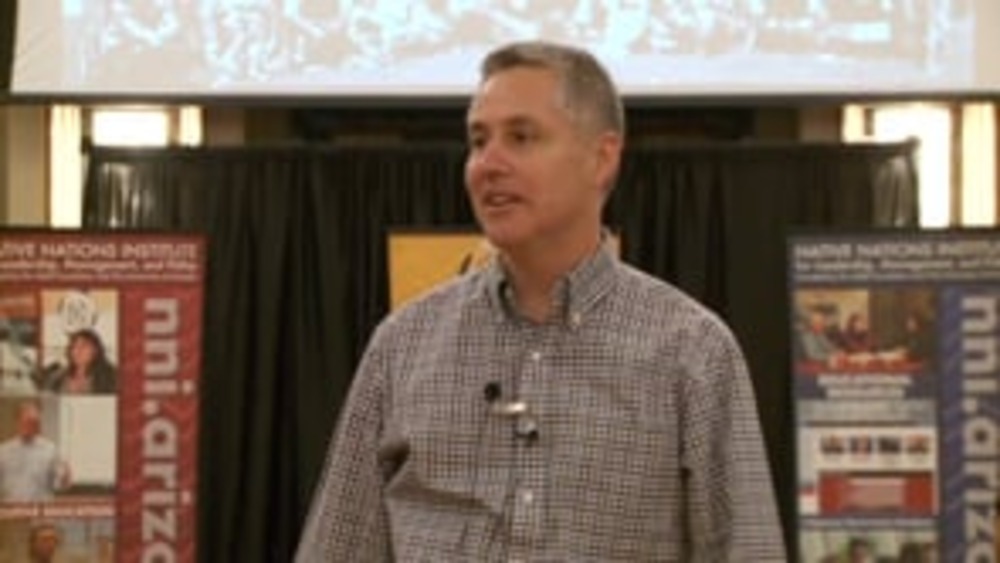
John Borrows: Who Are We and How Do We Know?
University of Minnesota Law Professor John Borrows (Anishinaabe) discusses how the Anishinaabe traditionally defined and practiced notions of social identity and belonging, and how those definitions and practices were rooted in relationships: relationships between those deemed to be part of the…
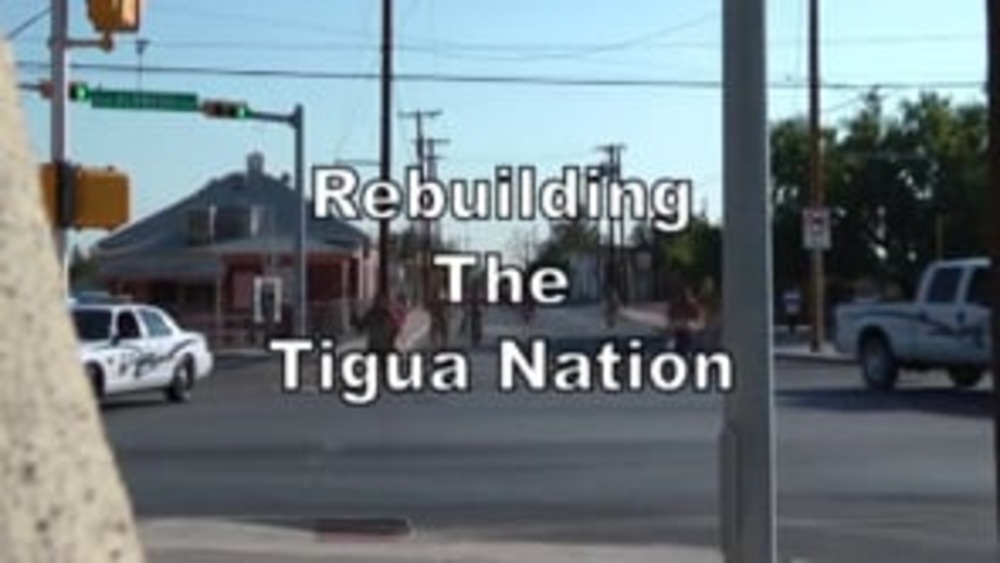
Rebuilding the Tigua Nation
The Tigua Indians of Ysleta del Sur Pueblo in Ysleta, Texas produced this 16-minute film in 2013 to demonstrate how a Native American tribe can work hard with business skills and tribal customs to shape a prosperous future through education for all levels of the Tigua Nation.
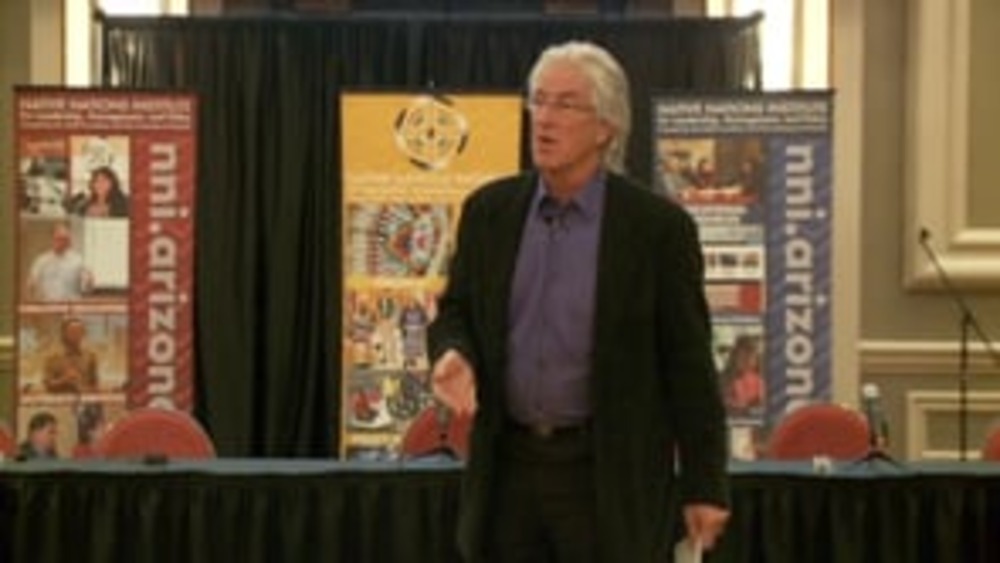
Robert Hershey: Dispelling Stereotypes about the Federal Government's Role in Native Nation Constitutional Reform
Robert Hershey, Professor of Law and American Indian Studies at The University of Arizona, dispels some longstanding stereotypes about what the federal government can and will do should a Native nation decide to amend its constitution to remove the Secretary of Interior approval clause or else make…
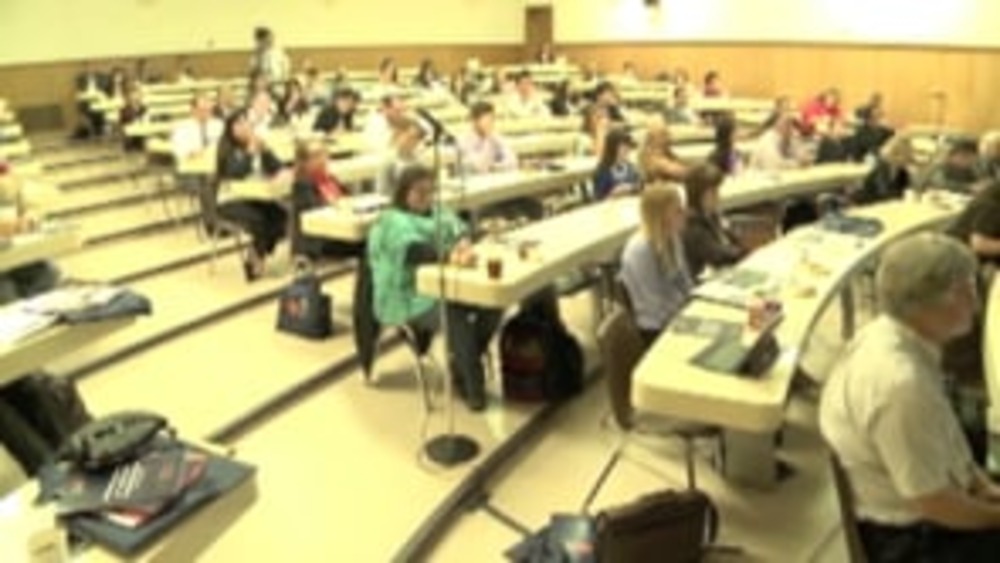
Good Native Governance Plenary 1: Innovations in Law
UCLA School of Law "Good Native Governance" conference presenters, panelists and participants Carole E. Goldberg, Matthew L.M. Fletcher, and Kristen A. Carpenter discuss law and the issues that Native nations deal with. Goldberg explains the recommendations of the Indian Law and Order Commission…
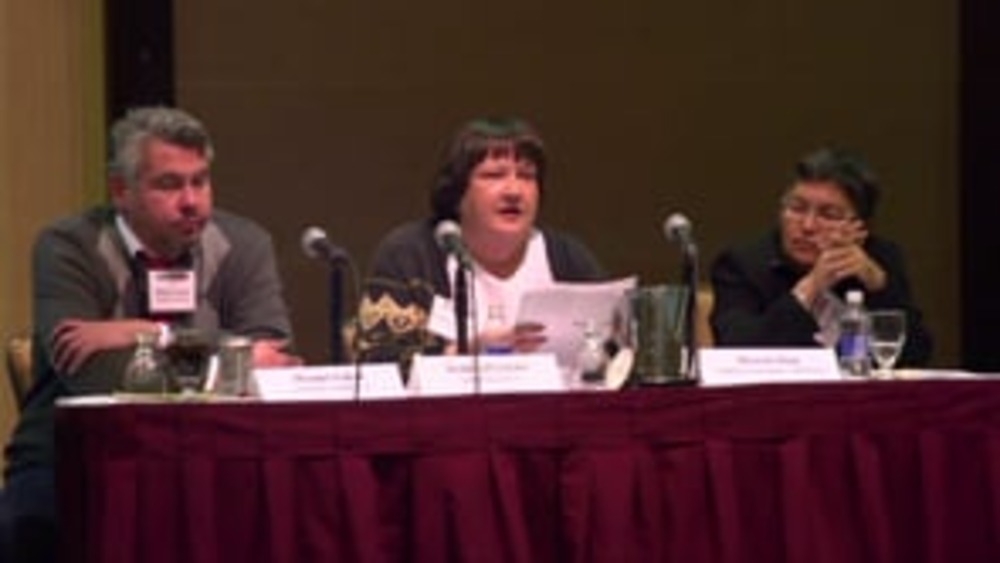
Deborah Locke: Disenrollment: My Personal Story
Deborah Locke, adopted by a Fond du Lac Band of Lake Superior Chippewa couple when she was a small child, shares her heartbreaking story of how she and her adopted siblings were disenrolled by the Band decades later because they were not the biological descendants of Fond du Lac Band members and…
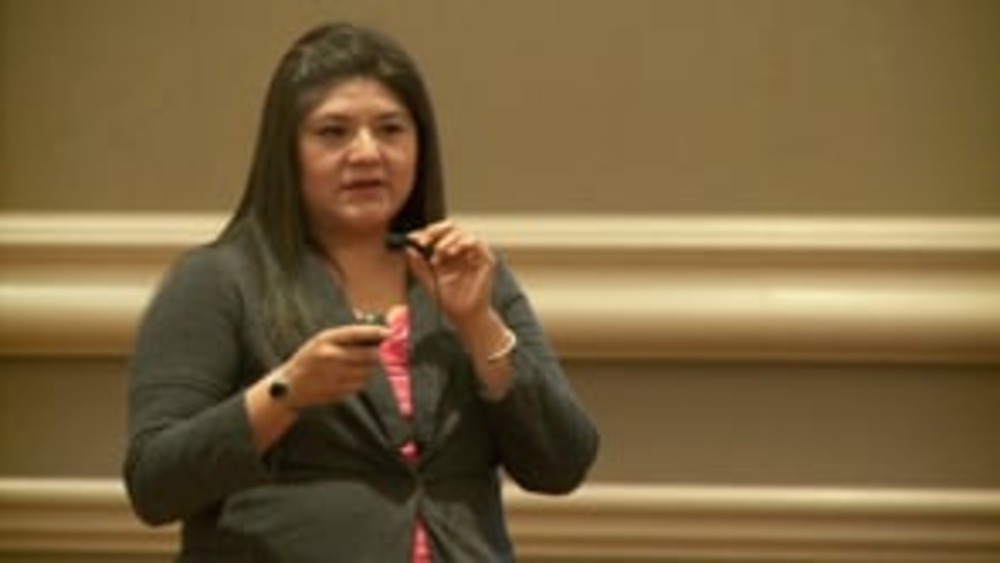
Shannon Douma: Cultivating Good Leadership: The Santa Fe Indian School's Summer Policy Academy
Shannon Douma (Pueblo of Laguna) provides a detailed overview of how the Santa Fe Indian School's Summer Policy Academy works to develop Pueblo youth to ably take the leadership reins of their nations through a rigorous curriculum designed to build up their sense of cultural identity and personal…
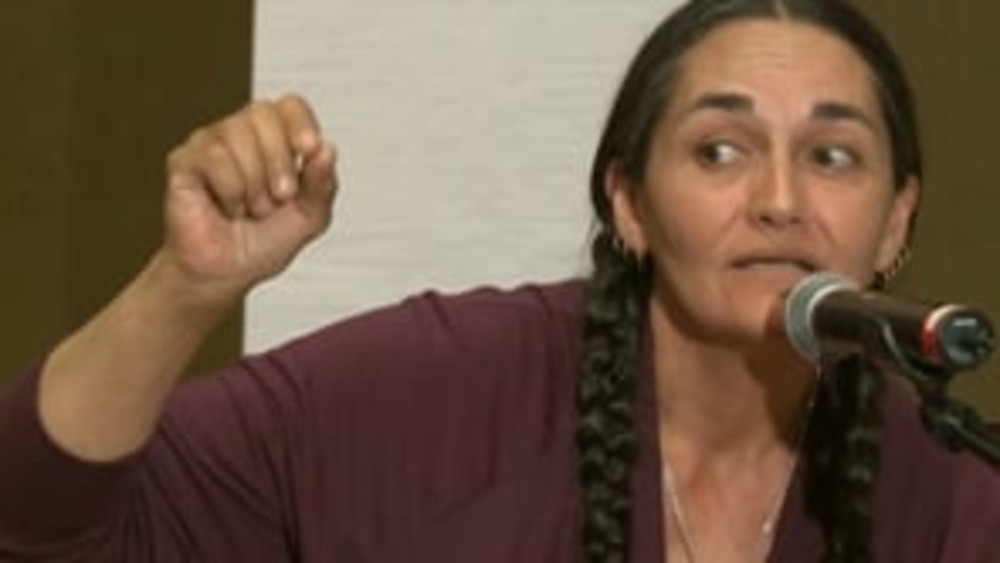
Gwen Phillips: Defining and Cultivating Strong, Healthy Ktunaxa Citizens
Gwen Phillips, Director of Corporate Services and Governance Transition with the Ktunaxa Nation, discusses how Ktunaxa people gained a sense of Ktunaxa identity and belonging traditionally, and the different criteria that Ktunaxa is considering including among its citizenship criteria today.
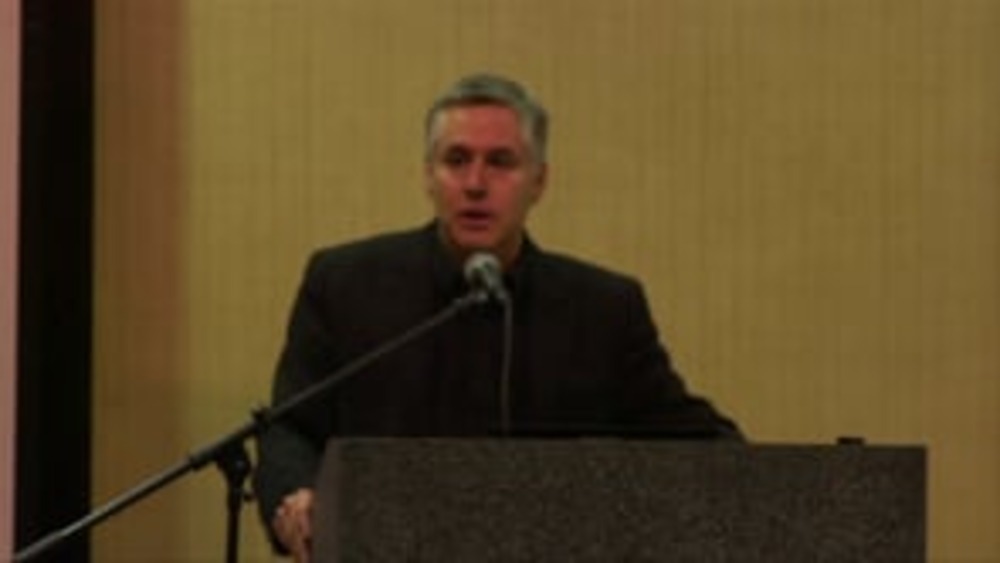
John Borrows: Anishinaabe Principles of Citizenship and Identity
University of Minnesota Law Professor John Borrows (Anishinaabe) provides an overview of how Anishinaabe people defined citizenship and identity traditionally, and how the cultural principles embedded in that traditional definition possess great power to inform laws defining tribal citizenship…
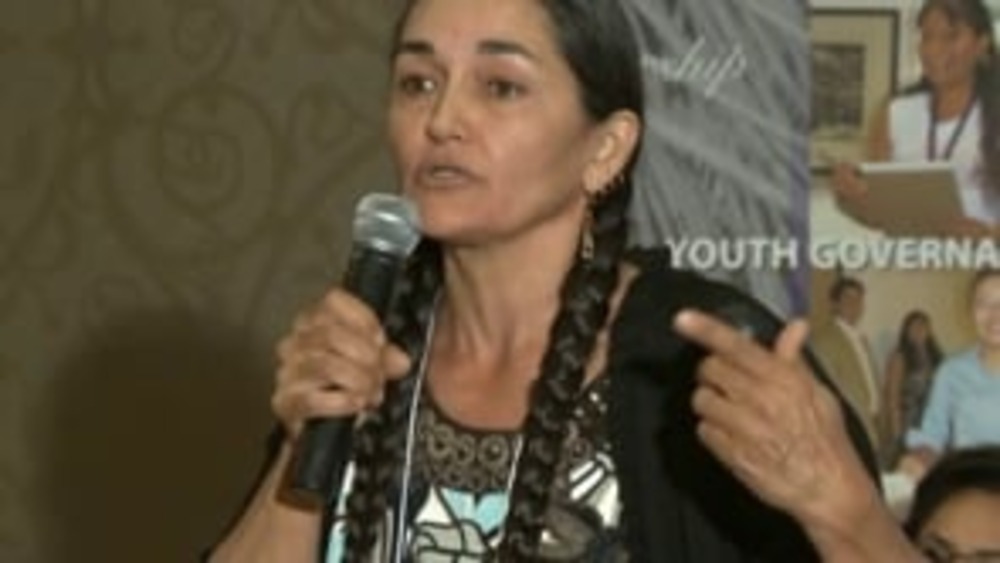
Gwen Phillips: The Relationship Between Constitution, Culture, and Citizenship
Gwen Phillips, Director of Corporate Services and Governance Transition with the Ktunaxa Nation, discusses some of the issues that the Ktunaxa Nation is deliberating as it engages the question of how to redefine its criteria for citizenship.
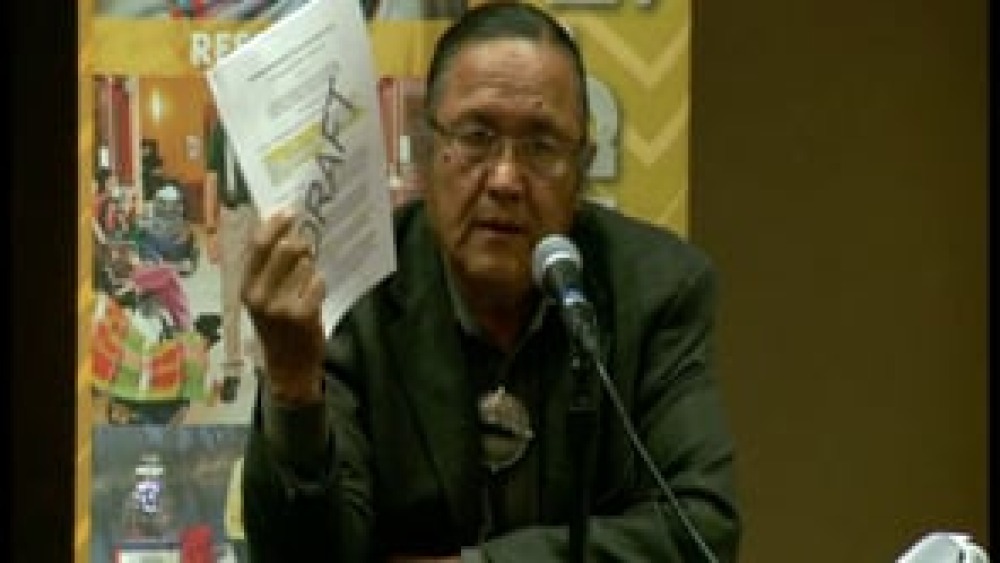
Robert Yazzie: Traditional Principles of Leadership
Former Chief Justice Robert Yazzie of the Navajo Nation Supreme Court provides an overview of the traditional Diné governance system and specifically the leadership principles that Diné leaders relied upon to make sound, informed, strategic decisions in consultation with and on behalf of…
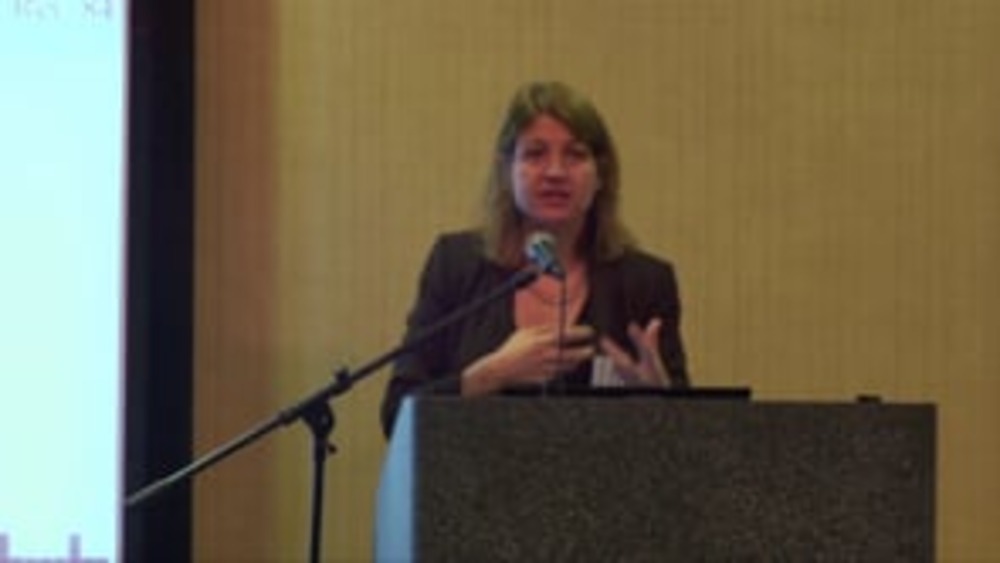
Bethany Berger: Citizenship: Culture, Language and Law
University of Connecticut Law Professor Bethany Berger provides a brief history of the federal policies that have negatively impacted the ways that Native nations define and enforce their criteria for citizenship historically through to the present day. This video resource is featured on the…
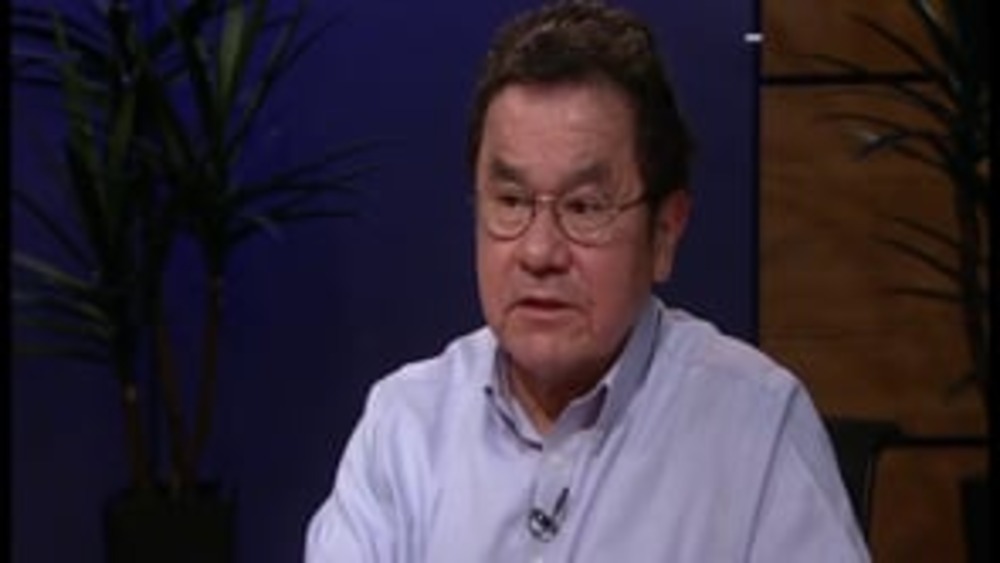
NNI Indigenous Leadership Fellow: John Petoskey (Part 1)
In the first of two interviews conducted in conjunction with his tenure as NNI Indigenous Leadership Fellow, John Petoskey, citizen and long-time General Counsel of the Grand Traverse Band of Ottawa and Chippewa Indians (GTB), discusses how GTB has worked and continues to work to build and maintain…
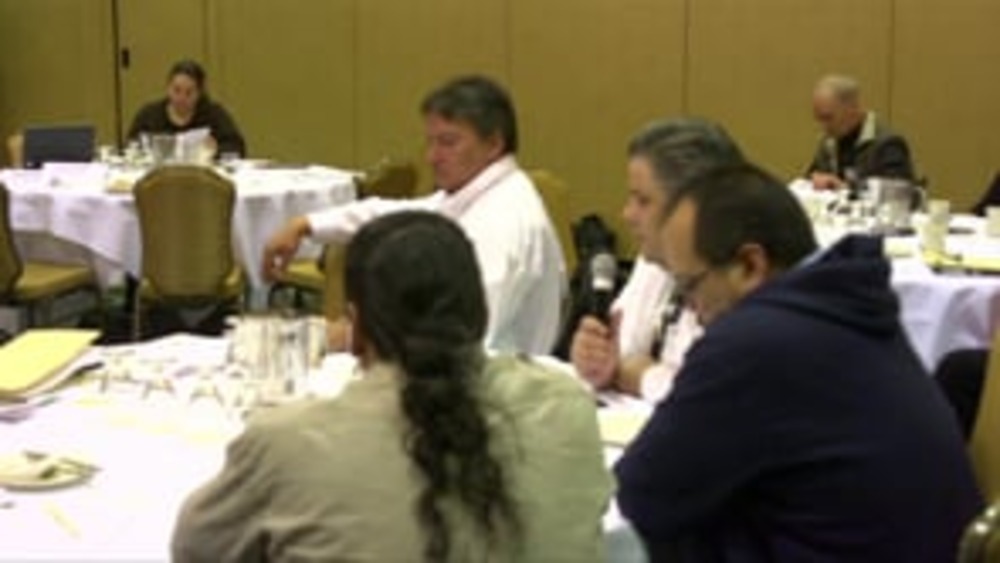
Jill Doerfler and Matthew Fletcher: Defining Citizenship: Blood Quantum vs. Descendancy (Q&A)
Panelists Jill Doerfler and Matthew Fletcher fields questions from the audience, and several participants offer their heartfelt perspectives on the complicated cultural and social dynamics surrounding citizenship and identity in their respective Native nations and communities. This video…
Pagination
- First page
- …
- 3
- 4
- 5
- …
- Last page
